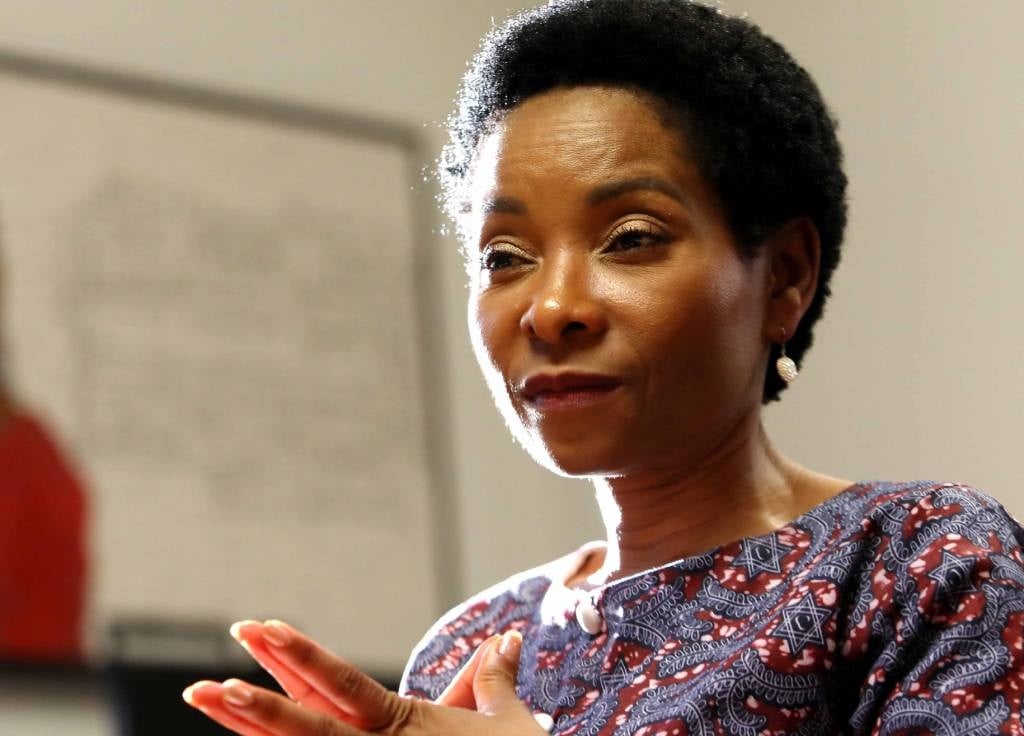
Former UCT vice-chancellor Professor Mamokgethi Phakeng.
Esa Alexander, Gallo Images, Sunday Times
- An independent panel, led by Judge Lex Mpati, has found former UCT vice-chancellor and council chair guilty of "serious governance failures".
- The UCT council released a 179-page report on Wednesday.
- The new council chair apologised for the university's failure to act appropriately in response to the panel's findings, acknowledging the emotional trauma caused by the previous council's actions.
An independent panel, chaired by former Supreme Court of Appeal president Judge Lex Mpati, has found that former UCT vice-chancellor, Professor Mamokgethi Phakeng, and council chair Babalwa Ngonyama committed "serious governance failures" by "mendaciously misleading" the university about the resignation of a colleague.
The 179-page report was released by the UCT council on Wednesday.
New council chairperson, advocate Norman Arendse, apologised "unreservedly" to those staff members who suffered at the hands of Phakeng. She left UCT in March with a golden handshake of R12 million.
A panel was constituted last year following allegations that Ngonyama had supplied false reasons to the UCT senate for the early departure of Professor Lis Lange, who was the deputy vice-chancellor for learning and teaching.
According to Ngonyama, Lange chose to leave of her own accord for personal reasons, News24 previously reported.
READ | Embattled vice-chancellor Phakeng leaves UCT with R12m golden handshake
Lange, however, denied this, saying Ngonyama had effectively pushed her out and told her that Phakeng didn't want her to continue as her second in command. The report found Lange's departure was a constructive dismissal.
In a statement released with the report, Arendse said the previous council, chaired by Ngonyama, did not act in the best interests of the university nor exercise fiduciary responsibilities.
The statement said:
An example was the failure of the council to act appropriately in relation to the report from the previous ombud (Professor Zetu Makamandela-Mguqulwa), which resulted in an exodus of senior staff. We recognise that had the council at the time fulfilled its governance role as required, the events that unfolded and emotional trauma to many individuals could have been avoided. We regret not acting sooner and we apologise unreservedly.
The university was in the process of taking remedial action against implicated staff and "deliberating an appropriate course of action" against those implicated in the report.
The Mpati report orders public apologies to UCT staff adversely affected during the turmoil that forced them to resign.
The report made several key recommendations to deal with governance and specific individuals, among them Ngonyama and former deputy chairperson of council, Pheladi Gwangwa.
The report recommended that Ngonyama's conduct in failing to perform her fiduciary duty to UCT must be reported to the appropriate regulatory authorities. She is a chartered accountant.
It said:
Her conduct, which placed UCT at risk, included, but was not limited to, initiating the termination of Professor Lis Lange's (former deputy vice-chancellor) contract without having the authority to do so, misleading council and the senate regarding the circumstances of her departure, attending and voting at a special council meeting despite having a conflict of interest and attempting to prevent the appointment of an independent panel to investigate her conduct by subverting the proper functioning of council.
The report also recommends that the council institute disciplinary proceedings against Gwangwa for breaching its code of conduct by failing to recuse herself from one or more council meetings in which she had a conflict of interest.
"And, thereafter ruling that the vice-chancellor and the chairperson of council were entitled to vote on a matter where they were manifestly conflicted, thus demonstrating clear bias or gross incompetence on her part," it said.
The report states: "To conclude that Ngonyama and Phakeng’s conduct during this period amounted to a governance failure would be an understatement. In an attempt to shield themselves from accountability they subverted the policies and procedures of UCT. Had it not been for the fact that half of the members of council and most in senate acted to protect UCT from their machinations the consequences could have been calamitous."
ALSO READ | Stellenbosch nepotism: VC apologises only for 'error of judgement', inquiry finds no breach
Among the remedies for individuals who were wronged by UCT, it is recommended that a written public apology, published on the university's website, must be issued to the 37 anonymous complainants against Phakeng, referred to in Makamandela-Mguqulwa's report for failing to act on their complaints.
"In addition, UCT must make available, at its expense, a counselling service for any complainant who experienced bullying by the erstwhile vice-chancellor," it said.
Phakeng said she didn't want to speak to News24 about the report.
 (1).png)
 1 year ago
11
1 year ago
11













